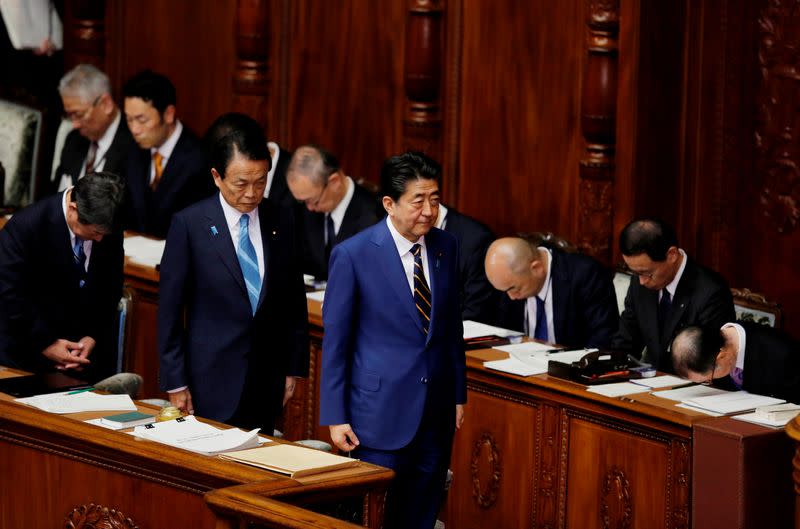Japan finmin dismisses need for BOJ to underwrite debt over virus stimulus

By Tetsushi Kajimoto
TOKYO (Reuters) - Japan's government is not planning to ask the Bank of Japan to finance its debt, which has been driven up by stimulus spending to contain the economic fallout from the coronavirus, Finance Minister Taro Aso said on Friday.
Aso made the remark at a news conference after a cabinet meeting, when asked about media reports that the Bank of England would resort to directly underwriting government debt to fund the cost of its coronavirus stimulus.
"We are not at all thinking of debt financing by the BOJ," Aso said.
"The BOJ is buying government bonds (from the market) based on its own judgment. I believe the BOJ adopts such a step as part of its battle with deflation."
The BoE said on Thursday it had agreed to lend to the government temporarily, if needed, to help finance its massive COVID-19 spending plans, as central banks ramped up their emergency responses to fight a likely global recession.
"I don't believe Governor (Haruhiko) Kuroda was considering financing debt in the same way as the BoE," Aso said.
Sensitive to claims it is resorting to monetary financing, or permanently supporting government spending by printing money, the BoE stressed its move was a short-term measure and any money borrowed would be repaid by the end of 2020.
Prime Minister Shinzo Abe rolled out on Tuesday a nearly $1 trillion spending package to battle the pandemic's fallout, with a plan to boost bond issuance to 147 trillion yen ($1.35 trillion), or 30% of the size of Japan's economy, to fund the stimulus.
The massive bond issuance could raise speculation that the BOJ may be forced to underwrite government debt by revising the law that prohibits such action.
The BOJ is currently conducting aggressive bond purchases from the market, effectively helping finance government debt, as part of its quantitative easing aimed at accelerating inflation to its elusive 2% target and reviving growth.
The stepped up bond-buying forms part of efforts by the government and the central bank to backstop the economy facing intensifying pressure from the pandemic.
(Reporting by Tetsushi Kajimoto; Editing by Muralikumar Anantharaman & Shri Navaratnam)

 Yahoo News
Yahoo News 